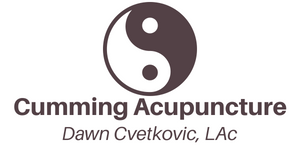Initial Assessment
Your first visit will begin with an in-depth assessment of your condition and an initial treatment. The intake and treatment will take one and a half hours (1 ½), depending on your condition. Typical follow-up treatments last approximately 45-50 minutes.
During the assessment, you may be asked about things that you might not think are connected to your chief complaint, such as your emotions, sleeping patterns, and eating habits. Chinese medicine considers the whole person, not just one isolated symptom. When put together, the myriad of symptoms and signs you are experiencing reveal patterns of disharmony. Although treatment will focus on your chief complaint, your whole being must be considered in order to develop the most appropriate course of treatment. Chinese medicine is unique in that it appreciates that illnesses may be identical, but the persons suffering from them are individuals.
Treatment
Needles are typically retained for about 30 minutes. Soothing music will be played to help you relax during this time. Many people even fall asleep during treatment. In addition to acupuncture, treatments may also include heat therapy called Moxabustion (Moxa), cupping, electrical stimulation, herbal prescriptions, nutritional supplements, and diet and lifestyle advice.
What to Expect After Treatment
Your relief may be immediate, delayed for a few hours, or even develop after one to three days. The relief may last for a few hours on the first visit and then last longer with each successive treatment, or relief may last from the first treatment until your next visit. Individual response to treatment varies.
Side Effects
Side effects are rare, but may include the following: feeling lightheaded, dizziness, sleepiness, euphoria, nausea, slight bruising, residual muscle aches. Any of these side effects should only last a short time. Staying hydrated after your treatment will help to minimize these side effects, as will resting after your treatment. Any side effects should be reported at your next visit.
Flare-up
On rare occasions, one’s original symptoms may briefly get worse, or “flare-up,” after a treatment. A flare-up typically occurs later on the day of your treatment and should only last for a few hours. After a flare-up, your symptoms should begin to improve. In the long run, acupuncture does not make symptoms worse.
In some conditions, the body must fully expel a pathogen in order for healing to occur. For example, if you have a cold, acupuncture will not get rid of the cold, but it can help accelerate the cold cycle so your body recovers faster. If you are fatigued and beginning to get a cold, acupuncture can help your body fight it off.
In cases of chronic pain, your original pain may improve and then unmask less obvious pain in the surrounding areas.
Course of Treatment
The number of treatments will vary from person to person.
As part of your first visit, you will receive a customized treatment plan detailing an appropriate course of treatment for your specific condition. In general, acute conditions of recent onset may only require two or three treatments.
Chronic conditions usually require more treatments to achieve sustained results.
The ideal approach to illness is to begin treatment as soon as possible. The sooner you seek help, the easier it is to treat. For longstanding illnesses, weekly treatments may be required for several months in order to have a curative effect. For patients planning on undergoing Western treatment for Hepatitis C or fertility, it is recommended that acupuncture and/or herbal treatments be started approximately three months in advance of Western treatment. However, many patients don’t learn of the benefits of Chinese medicine until they are already undergoing Western treatment. In that case, it is best to start acupuncture and/or herbs as soon as possible.
Once you initiate a healing process, it is important to follow through on treatments. The more consistent you are, the better the likelihood of results. The effects of acupuncture tend to be cumulative. After you are feeling better, a few additional treatments may be recommended.
In Chinese medicine, this is referred to as “solidifying the constitution.” The goal is to further strengthen your body to prevent recurrence of the illness. Your body is most vulnerable following recovery from illness because it has expended much of its energy and internal resources in order to get better. It is therefore important to have a few treatments in order to prevent repeated or new illness. In general, when an illness recurs it is often more difficult to treat.
